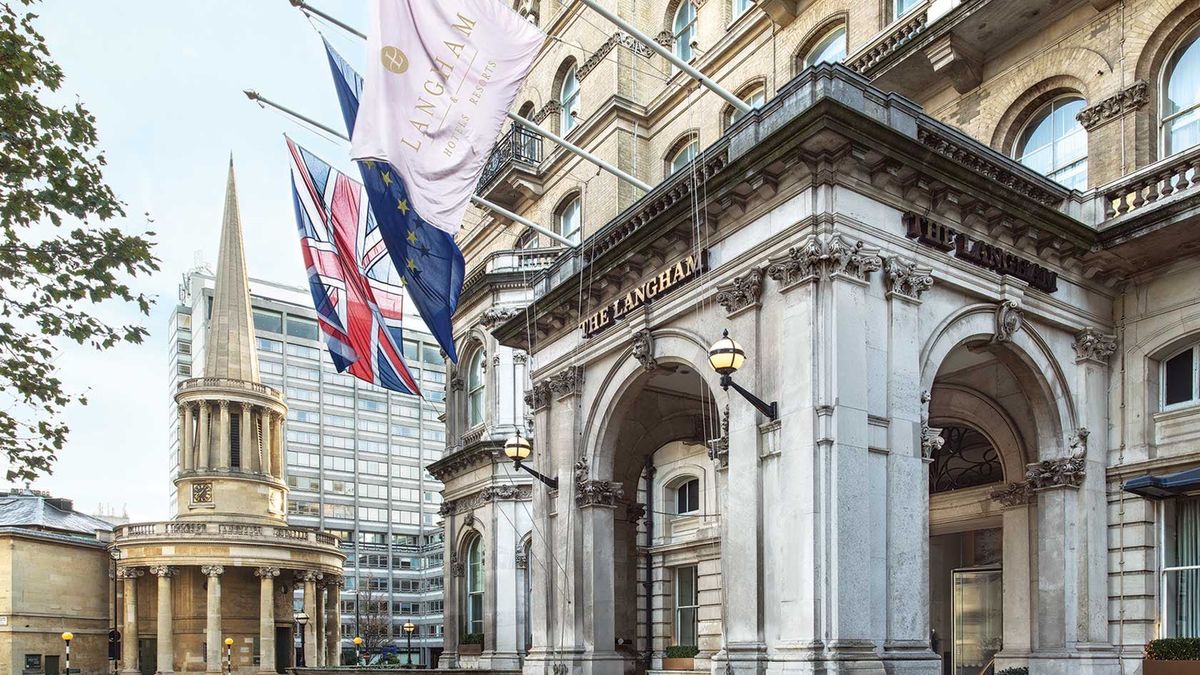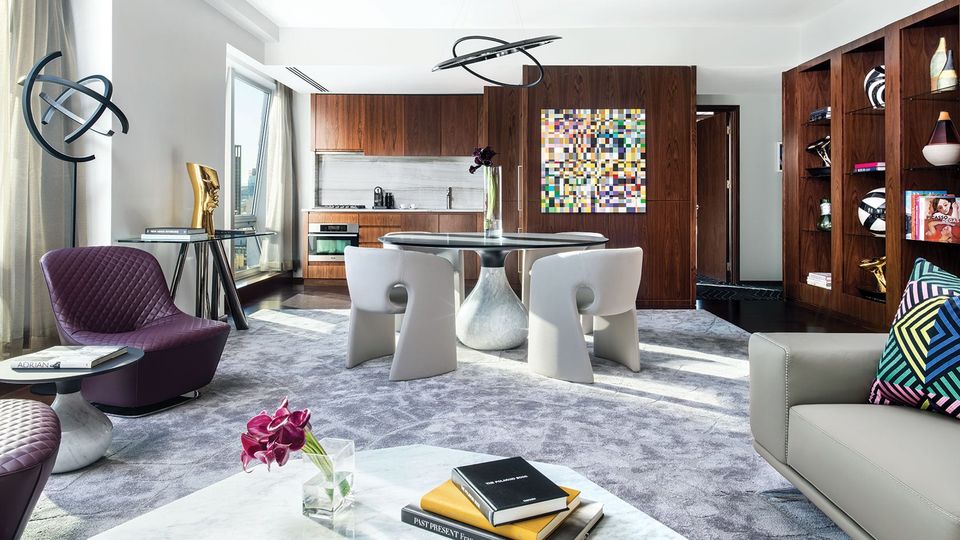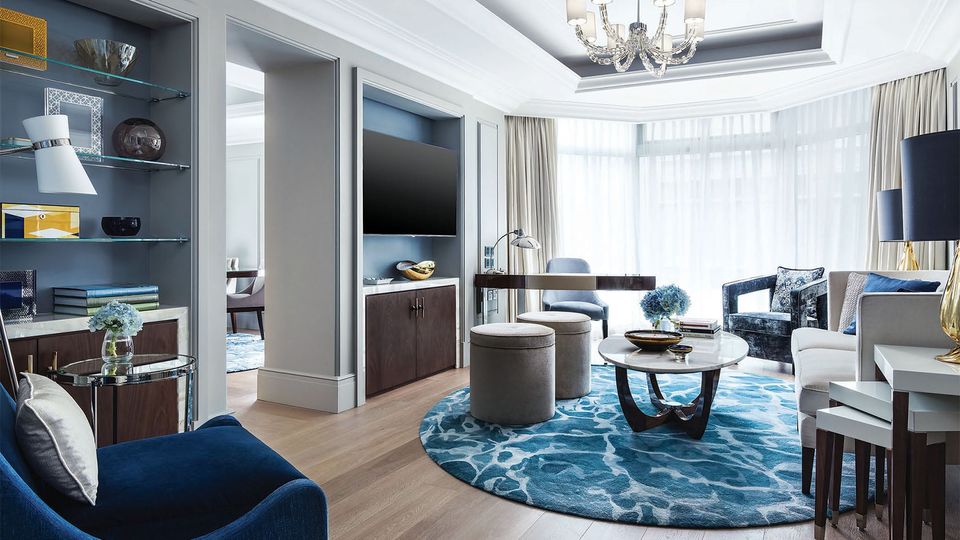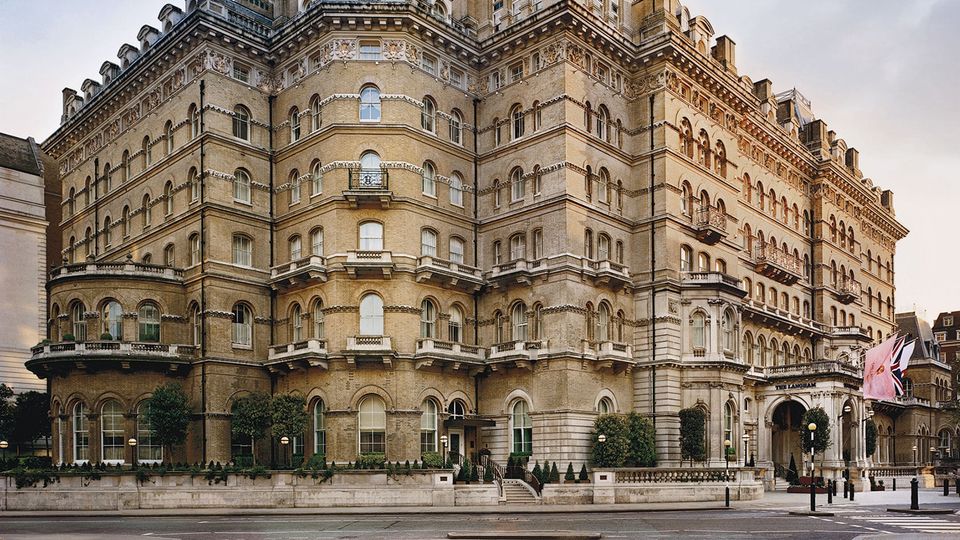‘Nobody gets out of this stronger’ says Langham Hotels CEO
Hospitality will be permanently altered by the pandemic: here's how one hotel group is handling it.

Known primarily for its big-city hotels with a business-leaning bent, Langham Hospitality Group would seem among the most exposed to Covid-19’s economic wrath.
But under the leadership of Chief Executive Officer Stefan Leser, the company is seeing a grab bag of highs and lows.
That includes the most ambitious expansion pipeline in the brand’s history, new properties whose reservations managers are busy with requests from people who may not be able to actually visit, and a strong business in China where hotels saw larger revenues in the back half of 2020 than they did in January, before the pandemic sent travelers away.
(Wuhan locked down on January 23, with further mainland China restrictions following a few days later, only marginally affecting that month’s revenues.)
That doesn’t mean things have bounced back to normal.
Langham’s profitability in China remains an exception (if also a road map for the rest of the industry’s eventual recovery); new lockdowns in London pushed back a long-awaited reopening in that key market, and staycation bookings are being cancelled in New York amid rising case counts.
Even those well-performing markets in Shanghai, Shenzen, and Changhsa are at risks of going back to square one as another outbreak ripples across the mainland. In other words, Langham is fighting like every other travel brand.
“I don’t like that phrase, ‘you get out stronger,’ ” Leser tells Bloomberg. “Nobody gets out of this stronger. We get out of this differently.”
Differently, in Langham’s case, means becoming more family-friendly, better able to cater to local guests, and increasingly protected by government.
In 2020, Leser became involved in an effort to establish a Minister of Hospitality in the U.K., in order to give greater visibility to his industry’s enormous economic impact.
If hotels are essential to a city’s bottom line, Leser’s task has been to make them essential to its citizens even while travel is off the table.
Focusing on what he can improve – both at his own hotels and throughout the industry – has been core to Leser’s strategy for survival. Here, the pockets he’s found to be especially ripe for innovation, the new perks with clear staying power, and the work that still lies ahead.
The new definition of hospitality
When people come to stay at a city hotel, they’re normally coming for the destination. So what’s the point of operating when you can’t be a conduit to the city around your walls?
You flip the script entirely, decided Leser. You transform the hotel into a fantastical place completely removed from the grim reality outside.
“The people coming to our hotel in New York are not coming to experience New York,” he explains. “They could do that in their homes.”
At Langham Hong Kong, oversized tables in the ballroom were replaced with actual hotel beds – set at least six feet apart—facing – a giant projection screen for a semi-private, super-plush alternative to Netflix on your couch.
In London, a new program called “Resort in the City” turns the staff florists and sommeliers into teachers who could offer workshops on ikebana or Champagne tastings.
It’s also resulted in more family-friendly programming, such as “Behind the Scenes” days or kids’ cooking classes that engage all ages within a controlled, Covid-safe environment.
These programs are expected to roll out brand-wide as international travel restrictions ease – which is Leser’s acknowledgment that his company’s purpose will remain fundamentally changed even after the pandemic’s grip has released.
And if the purpose of hospitality has changed, so has its language.
“It’s a very different conversation if you talk to a New Yorker about New York versus talking to a Swiss traveler about New York,” Leser explains. The scripts go out the window.
“Conversations at luxury hotels can be very pre-planned – Ritz-Carlton, for instance, is fantastically scripted. And at the size of that company you need that to ensure service standards.”
“Even when you bump into our housekeepers, they ask ‘How are you?’ ” Leser says. “That question became a lot more meaningful in 2020. Asking that means you need to listen and engage in that conversation.”
Forced introspection
Hotels will use this moment to rethink more than just their communication style.
“One thing people really don’t realize is when you open a hotel, and it’s not a seasonal property, the lights never go out anymore. There is no break. Hotels are always on, always busy, no time to say, ‘Let’s take a time out,’ ” Leser says. When problems crop up, “you change your wings in flight.”
This industry-wide downturn would represent time poorly spent if companies like Langham didn’t use it introspectively, Leser adds, predicting changes that could affect everything from in-room services to hotel job descriptions and back-of-house operations systems.
He adds, “When you’re busy you can’t ask big questions: Does that task need to be handed over from one person to the next? Can this experience or interaction become more engaging if we streamline the process? It’s the famous minibar conversation” - the idea of making a boring, forgotten feature feel fresh and compelling – “How do you create something more meaningful?”
Hotels collect troves of data meant to preconfigure the guest experience when someone returns; rarely do they have time to slow down and analyze it.
By doing so – and rethinking other long-overlooked aspects of their operations – hotels will manage the golden one-two punch that consultants dream about: creating internal efficiencies while improving the outgoing product. The challenge? “Raising the expectation that now this is the standard.”
When hospitality and politics mix
Leser’s most important work in the past year may have little to do with Langham and more to do with cementing the hospitality industry’s lobbying power in government.
“Our industry is very big but has never played a strong role in voicing its needs,” Leser explains.
“We are the second line of defense for care, we are taking care of people in any environment when they are not at home. And yet we have no [political] lobby.”
The fix he hopes for is the establishment of a Minister of Hospitality in the U.K., where Langham has its European flagship.
“If you have someone in government whose focus is on taking care of a business segment, you first and foremost have a seat at the table where things are being discussed. Your employees are more visible. And I have high hopes that that person will get something done,” Leser says of the campaign, which has garnered 150,000 signatures and is being debated in Parliament this month.
If successful, the effort could result in safety nets for hotel employees – Langham had to thin its ranks when visa restrictions prevented the company from moving staff in shut-down markets to other locations – as well as small business owners trying to leave their mark on an often-corporate industry.
“Single entrepreneurs in the bar and restaurant and entertainment business, they may not have the stamina to go through 10 to 16 months of no income. They’re falling through the cracks,” says Leser.
Ultimately that hurts everyone, including the hotels that can tough it out. “If all the shops and cafes and little restaurants are closed that’s not a pretty site. We need life pumping through our cities to make people want to come.”
This article is published under license from Bloomberg Media: the original article can be viewed here





03 May 2013
Total posts 684
Steffan do something about your Cordis Auckland ex Langham. It's gone way too 'arty farty' and lost the upper end feel. The staff are nowhere near as efficient and helpful as in the Langham days, albeit still super friendly. It's overpriced for what it is. Now that Park Hyatt is there that may be my go to.
Hi Guest, join in the discussion on ‘Nobody gets out of this stronger’ says Langham Hotels CEO